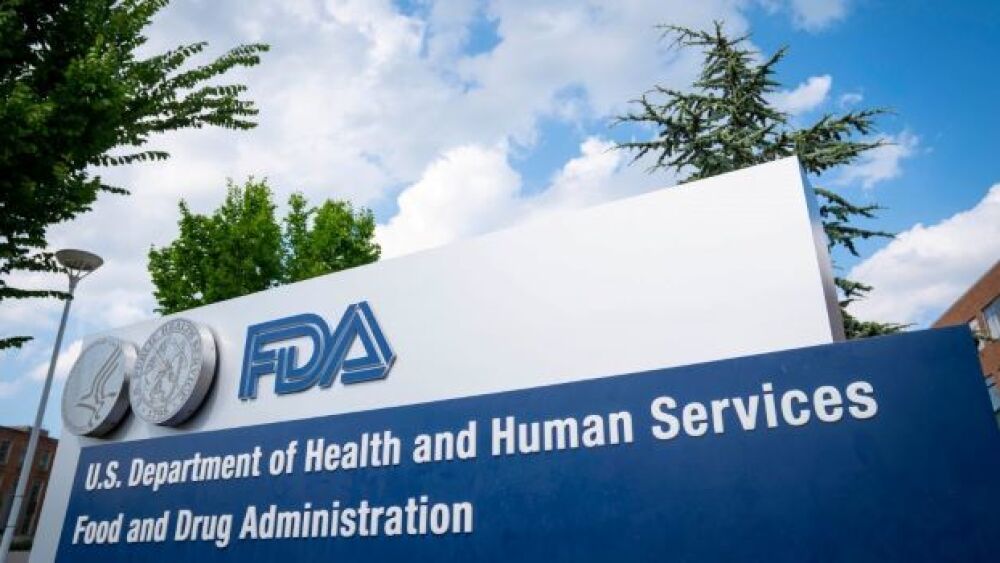The FDA granted Seagen’s tyrosine kinase inhibitor Tukysa accelerated approval for an aggressive form of colorectal cancer Thursday.
Sarah Silbiger/Getty Images
Seagen‘s Tukysa scored another win Thursday as the FDA granted the tyrosine kinase inhibitor accelerated approval for an aggressive form of colorectal cancer.
Tukysa was tested as a chemotherapy-free combination therapy with trastuzumab, the first monoclonal antibody drug for breast cancer. Results from the MOUNTAINEER trial showed a 38% overall response rate.
Three of the 84 patients achieved a complete response, while 29 saw a partial response. The majority of patients in the study had liver or lung metastases.
Biomarker testing continues to open the door for more personalized, targeted therapies for cancer patients. HER2 has been well established as a biomarker of poor prognosis in breast, gastric and colon cancers.
With the approval, Tukysa became the first FDA-approved treatment for RAS wild-type, HER2-positive metastatic colon cancer, a cancer with historically poor outcomes.
John Strickler, M.D., lead investigator for the MOUNTAINEER trial, said the approval of a chemotherapy-free combination regimen that specifically targets HER2 is great news for these patients.
Tukysa works by inhibiting the phosphorylation of HER2 and HER3, resulting in anti-tumor activity in HER2-expressing tumor cells. Its combination with the anti-HER2 antibody trastuzumab resulted in greater treatment efficacy than with either drug alone.
With the accelerated approval, Seagen will still be expected to prove Tukysa’s worth to the FDA to maintain its green light status.
Last February, the company launched a Phase III confirmatory trial combining its drug with trastuzumab and standard chemotherapy vs. chemotherapy given with or without cetuximab or bevacizumab in first-line HER2-positive metastatic colorectal cancer. David Caouette, vice president, corporate communications at Seagen told BioSpace that additional trials are in development for a range of HER2-expressing tumor types.
This is the second FDA green light for the drug. Seagen snagged its first nod for Tukysa combined with trastuzumab and capecitabine in April 2020 for patients with advanced unresectable or metastatic HER2-positive breast cancer who have received one or more prior anti-HER2-based regimens.
That was the year Seagen captured Merck’s eye. The two inked a partnership for two of Seagen’s cancer drugs. Merck dropped $125 million upfront for Tukysa sales rights in Asia, the Middle East and Latin America.
Last summer, the courtship set the rumor mill churning as Merck considered a $40 billion buyout of the Seattle biopharma. The deal has since stalled – allegedly due to irreconcilable differences over pricing.






